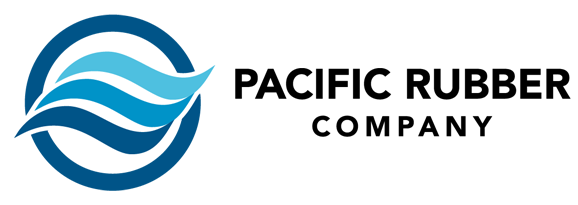Natural Rubber
Natural rubber, also known as latex, is a versatile and widely used material derived from the sap of the Hevea brasiliensis tree. It has been a vital resource for various industries due to its unique properties and applications. Natural rubber exhibits exceptional elasticity, making it ideal for the manufacturing of tires, belts, hoses, and various mechanical components. Its ability to stretch and recover its shape has made it indispensable in the automotive industry, where it provides excellent grip and durability, ensuring a smooth and safe ride.
In addition to its mechanical properties, natural rubber also possesses remarkable chemical resistance and electrical insulation capabilities. It resists the effects of acids, bases, and many organic solvents, making it suitable for applications in chemical processing plants and laboratories. Furthermore, its insulating properties have led to its use in electrical components such as insulation jackets, cables, and gloves, protecting against electric shocks and enhancing safety in various industries.
The sustainability of natural rubber is another significant aspect that has gained attention in recent years. As a renewable resource, it is biodegradable and can be sourced from responsibly managed plantations. Efforts are being made to promote sustainable cultivation practices, including biodiversity preservation and fair labor practices. The demand for sustainable rubber alternatives, driven by environmental concerns, has also spurred research into eco-friendly alternatives to natural rubber, such as bio-based or synthetic rubber. These efforts aim to reduce the environmental impact associated with rubber production while ensuring the continued availability of this valuable material.
Due to its great physical characteristics, natural rubber makes a fantastic gasket material. Natural rubber exhibits great low temperature flexibility and compression set as well as outstanding resilience, tensile, elongation, and abrasion resistance. It also adheres to cloth and metals very well.
Common Name:
Natural Rubber
Generally Resistant To:
Abrasion, Flex-Cracking, Impact, Water, and Staining
ASTM D 2000 / SAE J200 Classification:
AA
Chemical Name:
Polyisoprene
Generally Attacked By:
Solvents, Flame, Weather, Ozone, and Sunlight
MIL-R-3065 / SAE J-14 / MIL-STD-417 Classification:
RN
ASTM D-1418 Designation:
NR
Elongation:
500% to 900%
Hardness Range (Durometer Shore A):
30 to 85
Compression Set:
Excellent
Abrasion Resistance:
Excellent
Impact Resistance:
Excellent
Resiliance Rating:
Cold: Excellent
Hot: Excellent
Tear Resistance:
Very Good
Flame Resistance:
Poor
Flex Cracking Resistance:
Excellent
Minimum Service Temperature:
-70°F
Maximum Service Temperature:
+180°F
Recommended Shelf Life:
3 years
Ozone Resistance:
Poor
Steam Resistance:
Fair to Good
Weather Resistance:
Poor to Fair
Oxidization Resistance:
Good
Gas Permeability:
Fair to Good
Sunlight Resistance:
Poor
Water Resistance:
Very Good
Radiation Resistance:
Fair to Good
Acetone:
Minor to Moderate Effect
Amonium Hydroxide:
NOT RECOMMENDED
Animal Fats:
NOT RECOMMENDED
Carbon Dioxide:
Minor to Moderate Effect
Chlorine:
DRY: NOT RECOMMENDED
WET: NOT RECOMMENDED
Fluorine (Liquid):
– – –
Fuel Oil:
NOT RECOMMENDED
Gasoline:
NOT RECOMMENDED
Hydrochloric Acid 37%:
HOT: NOT RECOMMENDED
COLD: Minor to Moderate Effect
Hydrochloric Acid Concentrate 37%:
HOT: NOT RECOMMENDED
COLD: NOT RECOMMENDED
Kerosene:
NOT RECOMMENDED
Methyl Ethyl Ketone:
NOT RECOMMENDED
Mineral Oil:
NOT RECOMMENDED
Naptha:
NOT RECOMMENDED
Natural Gas:
Moderate to Severe Effect
Nitric Acid:
Concentrate: NOT RECOMMENDED
Dillute: NOT RECOMMENDED
Red Fuming: NOT RECOMMENDED
Petroleum:
Below 250: NOT RECOMMENDED
Above 250: NOT RECOMMENDED
Phosphoric Acid:
20%: Minor to Moderate Effect
45%: NOT RECOMMENDED
Propane:
NOT RECOMMENDED
Salt Water:
RECOMMENDED: Little or Minor Effect
Skydrol:
Skydrol 500: NOT RECOMMENDED
Skydrol 7000: NOT RECOMMENDED
Sodium Hydroxide:
RECOMMENDED: Little or Minor Effect
Sulfuric Acid:
Concentrate: NOT RECOMMENDED
Dillute: Moderate to Severe Effect
20% Oleum: NOT RECOMMENDED
Toluene:
NOT RECOMMENDED
Transformer Oil:
NOT RECOMMENDED
Vegetable Oils:
NOT RECOMMENDED
Vinegar:
Minor to Moderate Effect
- Depending on the storage conditions, the actual shelf life could change significantly.
- Store at or below 75 °F in a cool, dry area.
- Keep clear from open flames or direct heat.
- Stay away from contact with any liquids or solvents.
- Store away from direct sunlight.
- Keep goods sealed or wrapped to reduce moisture absorption.
- Keep in a relaxed state free of tension, compression, or other deformation when storing.
For additional information on how to keep your rubber items appropriately, see Rubber Storage Conditions.


